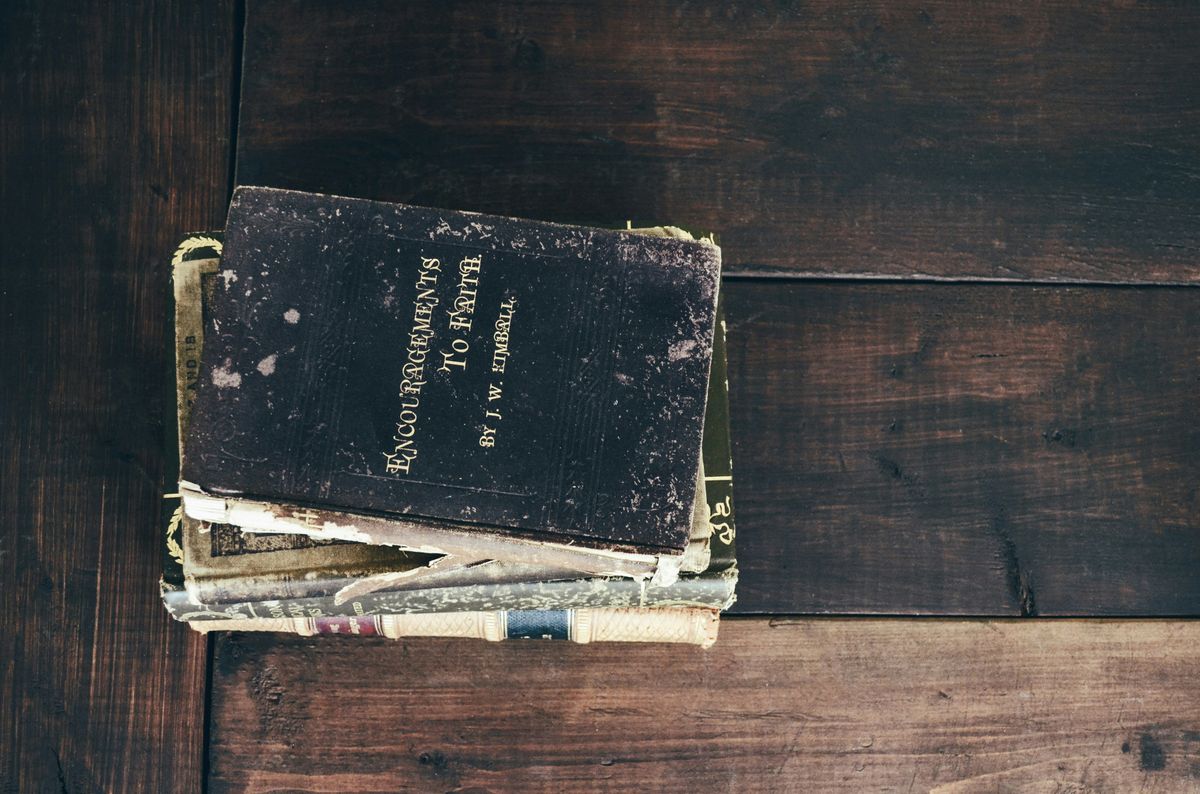The global wine and spirits industry frequently encounters financial disputes, and the trade between the USA and France is no exception. Handling unpaid invoices in this sector requires a nuanced understanding of international law, effective preventive measures, and a strategic approach to debt recovery. This article explores the multifaceted process of managing unpaid invoices in the USA-France wine and spirits trade, offering insights into legal frameworks, preventive strategies, and phased recovery systems.
Key Takeaways
- A comprehensive understanding of international trade agreements and jurisdictional laws is crucial for preventing and recovering unpaid invoices in the USA-France wine and spirits trade.
- Implementing preventive measures, such as vetting trade partners and establishing clear payment terms, can significantly reduce the risk of unpaid invoices.
- A structured, three-phase debt recovery system ensures initial contact, persistent engagement, and legal escalation to recover unpaid funds effectively.
- Engaging local attorneys and utilizing attorney-drafted demand letters can enhance the credibility of debt recovery efforts and increase the likelihood of payment.
- Assessing the viability of litigation is essential, as it involves understanding potential recovery, legal costs, and alternative actions if litigation is not recommended.
Understanding the Legal Framework for Wine and Spirits Trade between USA and France
International Trade Agreements and Regulations
The wine and spirits trade between the USA and France is governed by a complex web of international agreements and regulations. Navigating these rules is crucial for businesses to ensure compliance and avoid disputes. Key agreements include the World Trade Organization (WTO) principles, bilateral treaties, and specific industry protocols.
Jurisdiction plays a pivotal role in the enforcement of these agreements. Understanding which laws apply can be as important as the agreements themselves. For instance, the USA and France may have different approaches to labeling, safety standards, and intellectual property rights.
- WTO principles dictate fair trade practices.
- Bilateral treaties may cover tariffs and taxes.
- Industry protocols often address quality and authenticity.
Businesses must stay informed and adapt to the evolving legal landscape to protect their interests and prevent unpaid invoices.
Jurisdictional Considerations in Debt Recovery
When pursuing unpaid invoices in the USA-France wine and spirits trade, jurisdiction plays a pivotal role. The choice of jurisdiction can affect the enforceability of judgments and the overall success of debt recovery efforts. It’s crucial to understand which legal system will govern the dispute and how that impacts the collection process.
- Choice of Law: Determines which country’s laws will apply.
- Recognition of Judgments: Whether one country will recognize and enforce the other’s legal decisions.
- Legal Procedures: Vary significantly between the USA and France.
Jurisdictional strategy is not just about legal technicalities; it’s about leveraging the most favorable legal environment for debt recovery. This requires a nuanced understanding of both American and French legal landscapes.
Swift action and asset investigation are key in the 3-phase recovery system for successful debt collection.
In the context of USA-France trade, parties must proactively address jurisdictional issues within their contracts to avoid complications later. This foresight can be the difference between recovering a debt or writing it off.
The Role of Contracts in Preventing Unpaid Invoices
In the intricate dance of international trade, a well-crafted contract is the lead partner. Clear, comprehensive contracts are the cornerstone of preventing unpaid invoices. They delineate the expectations and obligations of each party, creating a legally binding roadmap for the transaction.
- Payment Terms: Specify due dates, late fees, and payment methods.
- Dispute Resolution: Outline steps for handling disagreements.
- Delivery Schedules: Confirm timelines and conditions for supply.
- Jurisdiction: Establish which country’s laws will govern the contract.
By setting these parameters, contracts act as a preemptive shield against non-payment, ensuring that both American exporters and French importers are on the same page.
When prevention fails, the contract becomes a powerful tool in debt recovery. It provides a clear basis for legal action, offering evidence of agreed terms and potential breaches. This clarity can often prompt a resolution before escalating to litigation, saving time and resources for all involved.
Preventive Measures to Mitigate the Risk of Unpaid Invoices
Vetting Potential Trade Partners
Before sealing any deals in the wine and spirits trade, conducting thorough background checks on potential partners is essential. This vetting process should include financial stability assessments, past transaction reviews, and reputation analysis.
Ongoing due diligence is crucial in international trade. Implement proactive measures, negotiate payment terms carefully, consider cultural nuances, and utilize trade finance solutions for smoother transactions.
Establishing trust is the cornerstone of any trade relationship. Ensure that your potential partners have a track record of honoring agreements and maintaining transparent communication.
Remember, a solid vetting process can save you from future disputes and the hassle of debt recovery. It’s not just about the immediate transaction, but building a sustainable and reliable trade network.
Establishing Clear Payment Terms
Clear payment terms are the cornerstone of smooth transactions. They set expectations and define the obligations of both parties. To ensure clarity and prevent misunderstandings, terms should be detailed and agreed upon before any trade begins.
Payment terms should include specific details such as:
- Payment deadlines
- Accepted payment methods
- Penalties for late payment
- Discounts for early payment
Establishing robust payment terms minimizes the risk of disputes and enhances the likelihood of timely payments.
Remember, payment delays impact winery exports in France. A solid legal framework supports the enforcement of unpaid bills, but proactive strategies like clear payment terms are essential. Diversify your customer base and incorporate secure payment methods to further mitigate risks.
Utilizing Escrow Services for High-Value Transactions
In the high-stakes arena of international wine and spirits trade, escrow services offer a secure transactional bridge between USA and France. By holding funds in escrow until all contractual conditions are met, both parties enjoy a layer of financial protection.
- Step 1: Agreement on escrow terms by both buyer and seller.
- Step 2: Buyer deposits payment into the escrow account.
- Step 3: Seller ships the goods upon notification of secured funds.
- Step 4: Buyer approves the received goods.
- Step 5: Escrow service releases funds to the seller.
Escrow minimizes the risk of non-payment and non-delivery, ensuring that high-value transactions proceed smoothly and with trust.
When considering escrow services, it’s crucial to select a reputable provider. Look for established track records and robust legal frameworks that align with the complexities of cross-border transactions. Escrow is not just a service; it’s a peace-of-mind investment for your international trade endeavors.
Phase One: Initial Steps in Debt Recovery
Immediate Actions Upon Account Placement
Upon the unfortunate event of an unpaid invoice, immediate action is paramount. Within the first 24 hours of account placement, a structured sequence unfolds to address the debt. A series of four letters is dispatched to the debtor, marking the commencement of the recovery process. Concurrently, skip-tracing and investigative efforts are initiated to secure the most accurate financial and contact information available.
The collector’s role is to relentlessly pursue a resolution, employing a variety of communication methods including phone calls, emails, and text messages.
If these initial endeavors do not yield a settlement, the case escalates to the next phase, involving legal intervention within the debtor’s jurisdiction. The urgency and rigor of these steps are designed to maximize the chances of recovery, reflecting the challenges highlighted in the USA-France renewable energy trade.
- Send initial demand letters
- Conduct skip-tracing and investigations
- Engage in daily communication attempts
- Prepare for potential legal action if necessary
Skip-Tracing and Investigative Techniques
When dealing with unpaid invoices in the wine and spirits trade, skip-tracing is a crucial step. It involves locating the debtor and assessing their financial status. This process is not just about finding a missing debtor; it’s about painting a comprehensive picture of their financial landscape.
Investigative techniques play a pivotal role in this phase. They include analyzing public records, credit reports, and other databases to unearth assets and liabilities. This information is vital for determining the most effective approach to debt recovery.
Proactive communication and consistent follow-up are key to reducing payment delays and maintaining financial health.
Here’s a snapshot of the initial actions taken within 24 hours of account placement:
- The debtor is sent the first of four letters via US Mail.
- Comprehensive skip-tracing and investigation are conducted.
- Attempts to contact the debtor through various channels commence, aiming for a swift resolution.
Communication Strategies to Engage Debtors
Effective debtor engagement is crucial for successful debt recovery. It’s not just about persistent contact; it’s about strategic communication. Here are key tactics:
- Personalized Communication: Tailor your approach to the debtor’s situation. Use the information gathered during skip-tracing to personalize messages.
- Cultural Sensitivity: Especially in international contexts, be aware of cultural nuances. This can influence the tone and method of communication.
- Consistent Follow-Up: Regular contact maintains pressure and shows determination. However, ensure it’s not perceived as harassment.
Persistence is key, but so is patience. Balancing firmness with understanding can lead to more productive conversations and, ultimately, payment.
Remember, the goal is to open a dialogue that leads to resolution, not to alienate the debtor. Employing a mix of communication channels—phone, email, letters, and even text messages—can increase the chances of a response. If initial efforts fail, escalating to legal representatives may be necessary, but this incurs additional costs.
Phase Two: Escalating the Collection Process
Engaging Local Attorneys within the Debtor’s Jurisdiction
When collection efforts escalate, engaging local attorneys becomes a pivotal step. These legal professionals, familiar with the debtor’s local laws and practices, can exert significant pressure. They initiate contact with a series of demand letters, tailored to resonate within the specific legal context of the debtor’s location.
- The attorney drafts and sends the initial demand letter.
- Follow-up communications via phone and email reinforce the urgency.
- Persistent legal presence signals the creditor’s commitment to recovery.
The involvement of local attorneys often marks a turning point in the collection process, bridging the gap between amicable resolution and formal legal action.
Should these efforts remain unfruitful, a detailed assessment of the case is provided, outlining potential next steps or the recommendation to close the case, ensuring transparency and control remain with the creditor.
The Impact of Attorney-Drafted Demand Letters
When local agencies in France assist in maintaining contact for debt recovery, the introduction of attorney-drafted demand letters can significantly shift the dynamics. These letters serve as a powerful tool, conveying seriousness and legal intent to the debtor. The formal tone and legal jargon used in such correspondence underscore the creditor’s determination to pursue the debt.
Attorney-drafted letters are not mere requests; they are a precursor to legal action. Their impact is twofold:
- They provide a clear and final opportunity for debtors to settle their dues without further legal complications.
- They act as a formal notice that legal proceedings will commence if the debt remains unpaid.
The effectiveness of these letters often hinges on the reputation and authority of the legal firm involved. A well-respected firm’s letterhead can prompt immediate action from the debtor.
In the context of USA-France wine and spirits trade, utilizing such demand letters can be a decisive step in the collection process. It is a strategic escalation that can lead to quicker resolutions and demonstrates the creditor’s commitment to recovering the debt.
Continued Communication Efforts by Legal Representatives
Persistent dialogue is key. Legal representatives maintain a steady stream of communication with debtors, employing a mix of tactics to secure payment. Consistency is crucial; it keeps the pressure on and the dialogue open.
- Letters on law firm letterhead
- Phone calls
- Emails
- Text messages
The goal is not just to remind but to engage. A resolution is always the target.
When cultural and language barriers arise, representatives adapt, ensuring messages resonate with the debtor. This approach is part of a broader strategy to navigate the complexities of the US-France wine trade, including building strong relationships and seeking legal assistance.
Phase Three: Assessing and Deciding on Litigation
Evaluating the Likelihood of Debt Recovery
When entering Phase Three, a critical evaluation is conducted to determine the feasibility of debt recovery. Financial investigations are pivotal, scrutinizing the debtor’s assets to gauge the potential for successful collection. If the likelihood appears slim, a recommendation to close the case is made, sparing clients from unnecessary expenses.
In cases where litigation seems promising, creditors face a decision. The choice to litigate requires an understanding of the upfront costs involved, typically ranging from $600 to $700. These costs cover court fees and filing expenses, essential for initiating legal proceedings. Should litigation proceed and fail, the creditor is not left with additional financial burdens; the firm absorbs the costs.
The decision to litigate is not taken lightly. It hinges on a careful balance between the probability of recovery and the financial implications of legal action.
The fee structure for debt collection is transparent and varies with claim volume and age. Here’s a quick breakdown:
- Accounts under 1 year: 30% (1-9 claims) or 27% (10+ claims)
- Accounts over 1 year: 40% (1-9 claims) or 35% (10+ claims)
- Accounts under $1000: 50% regardless of claim count
- Accounts placed with an attorney: 50% regardless of claim count
This tiered approach ensures that creditors are only charged based on the recovery made, aligning the interests of both the firm and the client.
Understanding the Costs and Process of Legal Action
Embarking on litigation in the USA-France wine and spirits trade can be a costly endeavor. Legal costs for Phase Three legal action range from $600 to $700, including court costs and filing fees. These upfront expenses are critical for initiating the lawsuit and are generally non-refundable.
The decision to litigate should be weighed against the potential recovery. If the debtor’s assets are insufficient, the costs may outweigh the benefits.
Creditors must also consider the collection rates, which vary depending on the age and size of the account. For instance, accounts under one year may incur a 30% fee on the amount collected, while older or smaller accounts could see rates up to 50%. It’s essential to factor in these percentages when calculating the feasibility of litigation.
If litigation proves unsuccessful, the creditor is not left with additional financial burdens. No fees are owed if litigation fails, providing a safety net for creditors who are already facing losses from unpaid invoices.
Options for Creditors if Litigation is Not Viable
When litigation is off the table, creditors must pivot to alternative strategies. Consider case closure if asset investigation reveals slim recovery chances. Cost analysis and preventive measures are pivotal for future dealings. Creditors can opt for standard collection activities, such as calls and emails, to persist in debt recovery efforts.
Creditors should weigh the financial implications of continued pursuit against the debtor’s ability to pay. A structured approach to decision-making can be outlined as follows:
- Evaluate debtor’s assets and likelihood of recovery
- Analyze costs versus potential benefits of further action
- Decide on case closure or continued standard collection activities
In the absence of litigation, a strategic reassessment is essential to minimize losses and realign recovery tactics.
Remember, no additional fees are incurred for case closure recommendations or if litigation attempts fail. The focus shifts to efficient use of resources and the refinement of credit management practices.
As you navigate through Phase Three: Assessing and Deciding on Litigation, it’s crucial to have a reliable partner by your side. At Debt Collectors International, we offer expert guidance and a comprehensive evaluation to ensure your decision is informed and strategic. If litigation is the recommended course of action, our skilled team and network of attorneys are prepared to support you every step of the way. Don’t face this complex phase alone; visit our website to request a free collection quote or place a claim for collections, and take the first step towards successful debt recovery.
Frequently Asked Questions
What are the initial actions to take when dealing with unpaid invoices in the USA-France wine and spirits trade?
The initial actions include sending a series of demand letters to the debtor, skip-tracing and investigating to obtain financial and contact information, and using communication strategies like phone calls, emails, and faxes to engage the debtor and seek a resolution.
How do international trade agreements affect debt recovery in the USA-France wine and spirits trade?
International trade agreements can outline the legal framework for resolving disputes and may provide mechanisms for debt recovery, as well as influence the jurisdiction and applicable laws for the trade.
What role do contracts play in preventing unpaid invoices?
Contracts are crucial as they clearly define the payment terms, obligations of each party, and consequences of non-payment, which can prevent misunderstandings and provide a legal basis for debt recovery.
What are the recommended steps if litigation appears to be the only option for debt recovery?
If litigation is recommended, the creditor must decide whether to proceed with legal action and be prepared to pay upfront legal costs. If the creditor opts for litigation, an attorney will file a lawsuit to recover the debt and associated costs.
What are the potential costs associated with filing a lawsuit to recover an unpaid invoice?
The upfront legal costs for filing a lawsuit typically range from $600.00 to $700.00, depending on the debtor’s jurisdiction, and cover court costs, filing fees, and other related expenses.
What happens if attempts to collect a debt through litigation fail?
If collection attempts via litigation fail, the case will be closed, and the creditor will owe nothing to the firm or the affiliated attorney, provided that all agreed-upon terms and conditions are met.





